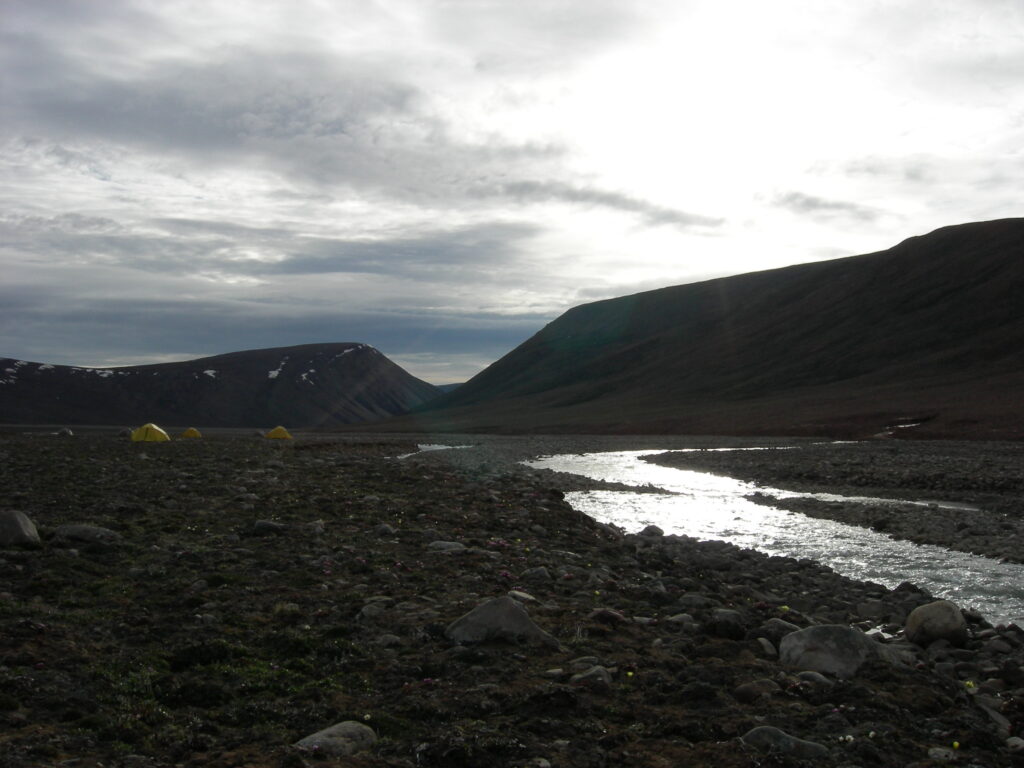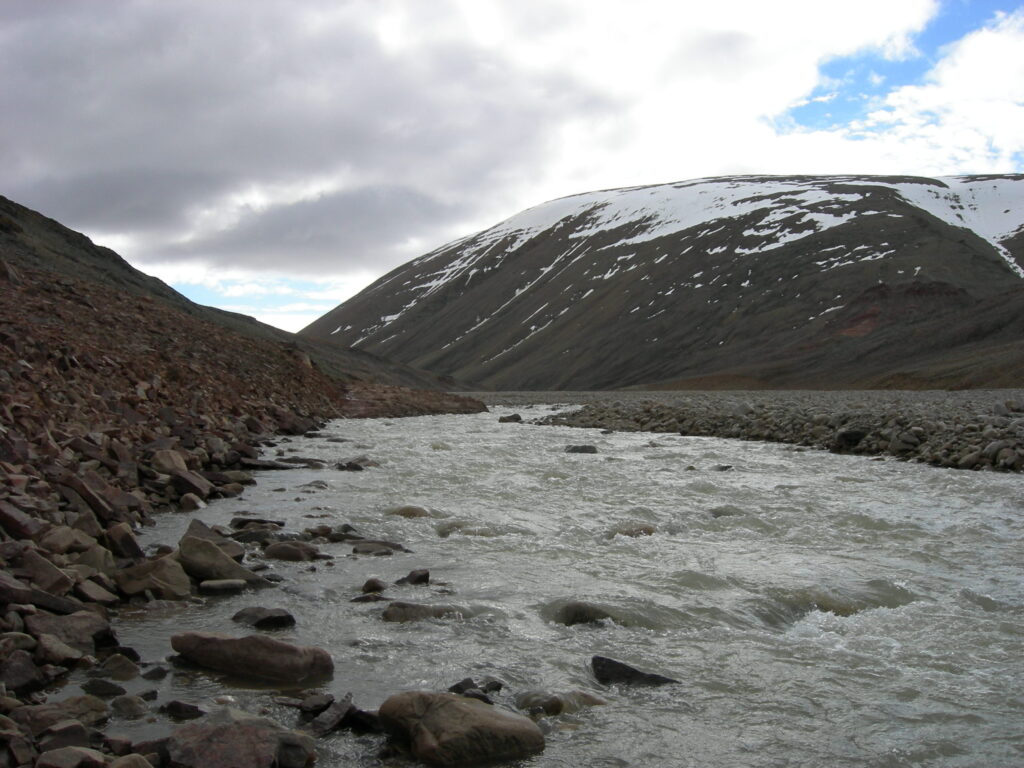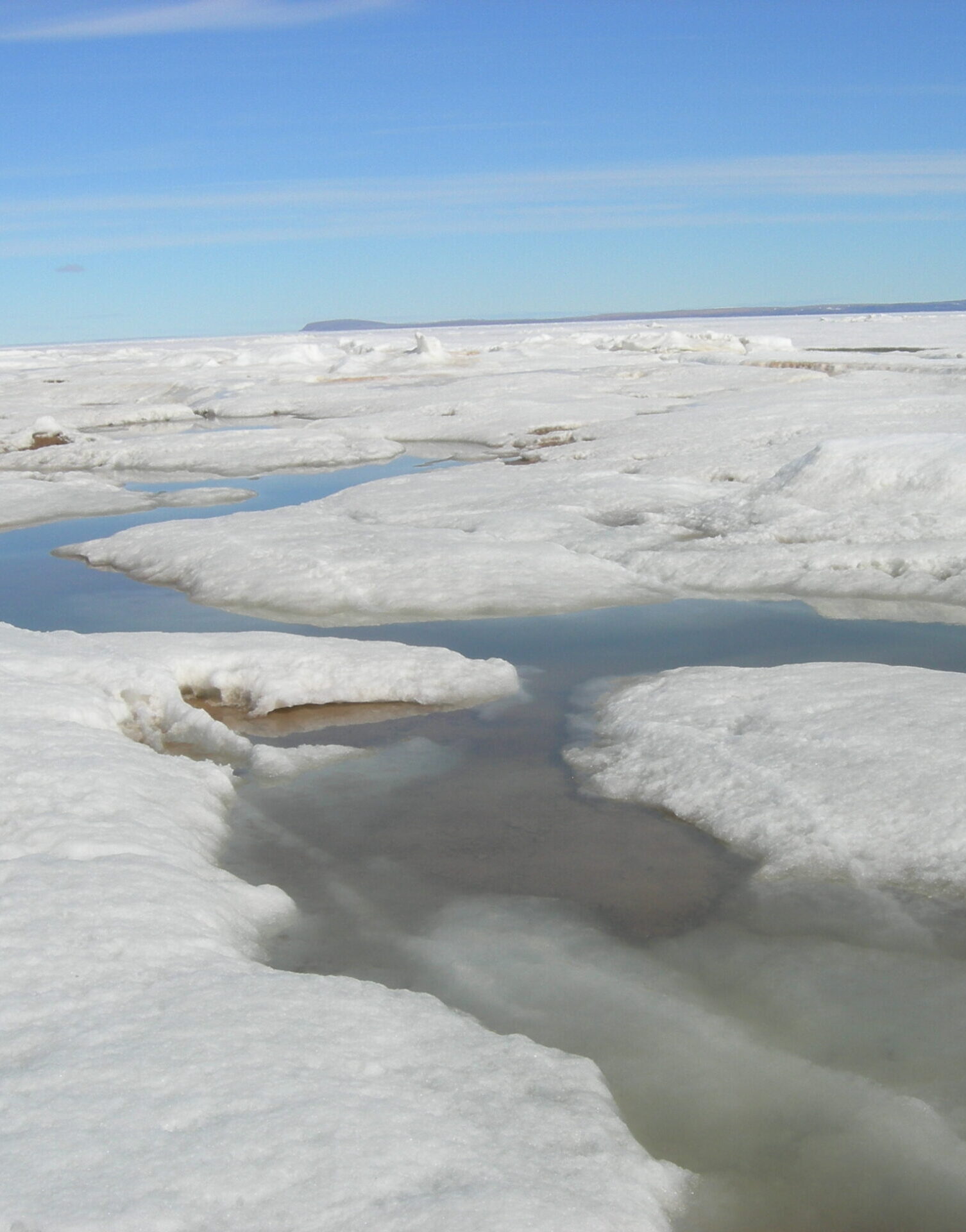
Photos courtesy of the author.
Ellesmere Island, Nunavut, Canada
Ellesmere Elegy
This land dreams up marvels:
a meteorite shower of clumpy
snow streaking under midnight’s sun.
This land embodies ruses:
broad valley floors and nondescript
slopes distorting scale and distance.
This land stages parables:
a lone caribou, its coat the color
of fog, curiously approaching humans.
This land practices awe:
after a storm, the sun blasting its rays
through the sargassum of silvered clouds.
This land divulges ghosts:
among outcrops, the bones of dead life
forms weathering out from solidified silt.
This land inks its own elegy:
the ruin of a glacier on the horizon
hemorrhaging meltwater past our feet.

Photos courtesy of the author.
A Blank Page
Leaving Ellesmere Island
In these parting minutes, the sunlight
is lavish enough to give us a sky
passable for a polished blue gem
while we close our time on Ellesmere
readying ourselves for the twin otter
and a late morning return to Resolute,
the beds and hot showers awaiting us
now restful decadences after a month
of tents and sleeping bags, poor shaves,
and having only the gooseflesh option
to wash ourselves in the valley’s stream.
Having packed all our tools, camping
gear, and haul of fossils for departure,
I’m sure that the others’ ears are alert
for the propeller drone announcing
the plane’s imminent approach
as they mill about making small talk
or stoop down to shoot saxifrage petals,
fuchsia enlarged through a macro lens—
My footsteps, though, are called forth
to where waves test the toes of my water-
proof boots, a booming barely audible
drawing me by ear towards the offing.
I see nothing out in the sound’s direction
save for cobalt eddies, leaving me
to suppose it could be the machinery
on a factory-sized ship winching aboard
colossal catches of fish or the handiwork
of fellow scientists mining novel data
from the depths; however, I would rather
imagine the clashing of floes and calving
icebergs quaking oceans, waters pitching
with mountain-high crests overpowering
even whole pods of whales—
Beached and lending credence towards
my preferred explanation, a raft of ice
rests halfway in the wash some yards off,
melting contours all slick with sun glare
somehow having lasted this late into July
though no other ice lies within sight,
its oblong length like a sailor collapsed
ashore after escaping maritime calamity.
Soon its thawing remainder will mingle
with the surf and rejoin Arctic currents,
and I suspect too that this booming—
whatever its source—will also come
to an end, with either leaving no trace
in accordance with the earthly law
of unending turnover that sweeps away
mountains and oceans just the same
as ice and echoes and every species
to have ever evolved over four billion
laps circling the sun, their lost stories
tantalizing us like a blank page that begs
us to guess what now stands unknown
in annals recorded in disappearing ink.
Brandon Kilbourne is a two-time Pushcart-nominated poet and research biologist at the Berlin Museum of Natural History. His work has appeared or is forthcoming in Ecotone, Poet Lore, Obsidian, Terrain.org,Tahoma Literary Review, West Trade Review, Split Rock Review, and elsewhere, with his work also being translated into Estonian in Sirp. He has given invited poetry readings at scientific conferences on entomology, natural history, and paleontology in Canada, the UK, and the US, and in 2024, he was Artist-in-Residence in the School of Veterinary Medicine at Louisiana State University, during which he explored the parallels between science and poetry.




